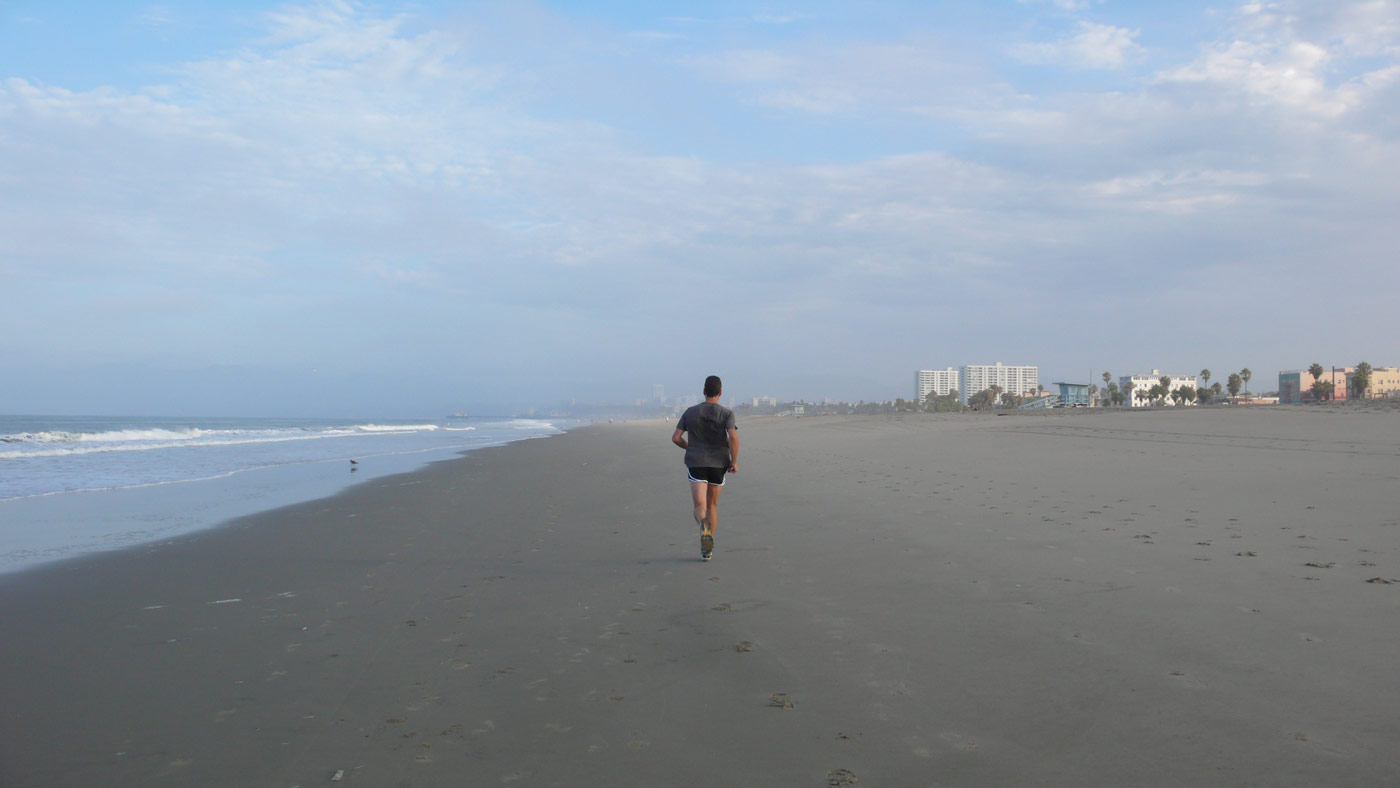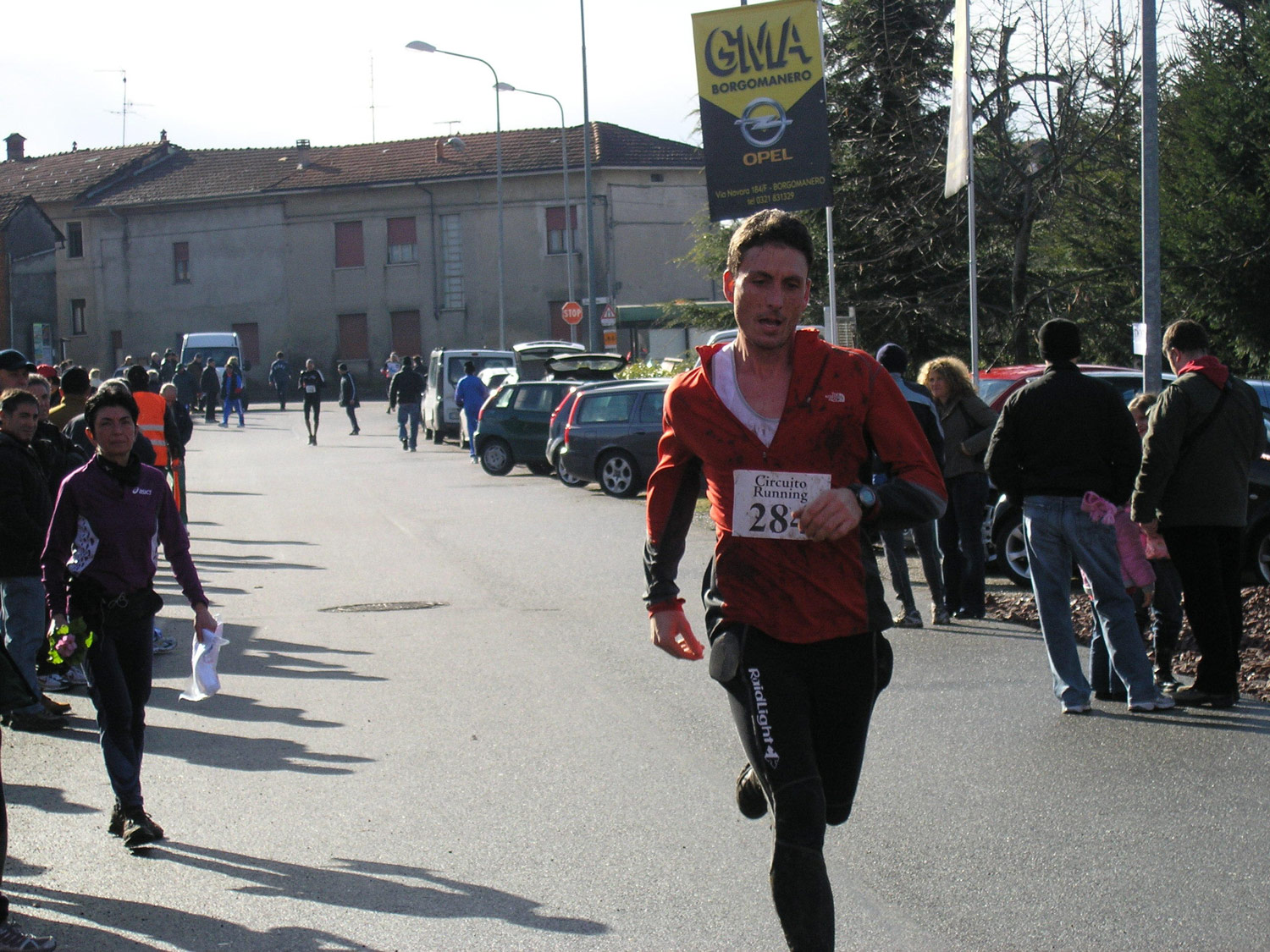It's nine o'clock at night, I've just come out of the office, I've got a pair of tattered All-Stars on my feet and I'm wearing a cotton T-shirt so heavy that it feels like lead. I keep looking at the screen of the treadmill of the guy in front of me and it seems impossible that someone can run ten kilometres in less than an hour. It feels like he’s gliding effortlessly. As soon the odometer tells me I’ve covered 4 kilometres, I angrily press the red button to stop the contraption immediately. My shirt is totally soaked, my legs burn with every breath, I smell ammonia in my nose and my heartbeat shows no signs of slowing. I keep sweating, even after showering.
(I found out only later that all those symptoms were caused by exercising too intensely for my training level. I was basically burning more calories than my body was ready for. The excessive consumption of muscle glycogen, combined with the poor capacity to utilise fats led my body to use muscle proteins as fuel, generating such waste products as lactic acid (muscle stiffness) and ammonia, which was expelled with sweat.)
I have been getting poor sleep for years, I feel tired all the time, the weekend is barely a short break to recharge my exhausted batteries. Gastrointestinal problems strike me at the most unfortunate times, seasonal ailments periodically knock me down, and any physical effort seems so superhuman that it is not worth the hassle.
In spite of everything, a few days later I put out my last cigarette and with a new pair of shoes I started running in a city park.
This is how I started running a few years ago, as a response to a low point in my life.
After a few months I tried to run my first half-marathon, which I finished throwing up at the finish line.

Then a friend tells me about trail running and a race the following Saturday. With unsuitable gear, I start to hike the longest climb of my life. I still remember the time it took me to reach the top as the most intense effort I had ever made. But once I reached the top, I would never forget the satisfaction of admiring that pristine landscape, which seemed even more beautiful due to the absence of human settlements. Just as I would never forget the crisis that literally paralysed me on the last climb, five kilometres from the finish. It had been years since I’d cried as much as when I crossed the finish line a few hours later. The reward after the effort had generated a maelstrom of mixed emotions in me.
But that race also left a mark on me in another sense. The course I had laboriously completed was the short version of the main race, twice as long. When the heroes of the long race came to the finish line, running with a smile on their faces, I was moved by their accomplishment. At that moment it seemed impossible to me that anyone could do something like that, but unconsciously the spark of the challenge had been lit in me.

I need some points of reference, to start adequately.
I start perusing types of races, times and distances. I buy all the books I can find on running, I read, I study and try to learn as much as possible. I start training to be better prepared for the next challenge.
As time went by, I started experiencing that magnificent, almost magical feeling. It was my body, changing and adapting to the effort and fatigue. That feeling I get every time I accomplish something that seemed impossible and unattainable before.
The human body is a fantastic machine and, unlike mechanical structures that are designed to withstand certain loads, it is capable of withstanding incredible stress if introduced gradually and with adequate recovery time.
In the meantime I lose weight, my resting heart rate halves, I sleep better, I change my diet and my digestive problems disappear. I hardly get sick any more and above all, I have completely eliminated all forms of synthetic medicines, based on the principle that a healthy body can react autonomously to external aggression.
Allowing time for work and family, I begin to better organise my training and slowly discover one of the fundamental values of sports, perhaps the most democratic and timeless. The more I strive and tire myself, the better I perform.
Particularly it’s the running on trails which pays the biggest dividends. In every hike there is a moment when time stands still and I find myself, as if by magic, in perfect harmony with my surroundings.
Running in the great outdoors becomes, for me, the very experience of discovering a new place, adapting my pace according to how I’m feeling. Adapting to the natural environment to explore it and to discover its wonders. Running, driven only by one's inner desires, with no one else around, except, possibly, a distant invisible satellite in space recording our movements and heartbeats.
Trail running means a lot to me; in fact, perhaps, trail running has even changed my life and made me a better person. Ever since I started running, I immediately discovered the magic of exercising off the beaten track.
Trail running, to me, is taking a path without even knowing where it will lead, and then another, and running until you can't take it any more; and then stopping, panting and looking up, while finding yourself, mesmerised, immersed in nature.
Trail running is seeing the world from a different perspective. That of those who reach their goals under their own steam.
It is resisting the fatigue of the climb and savouring the thrill of the descent.
It is the salty sweat of summer, the scent of leaves and mud in autumn, the silence of snow in winter and the spring breeze on your skin.
It is the people you meet, with whom a smile is enough to get along.
It is contact with nature, in all its forms, even the wildest.
It is freedom to run on any terrain, at any time and whatever the weather.
It is an adventure within ourselves.
In which, on the first day above 30°, you drink more than a litre an hour, but on the second day your body already adapts and only needs half a litre.
In which the sun dries your skin and the sweat burns your eyes.
In which you are so happy to run that you don't care about the brambles that scratch you and only realise it when you enter the village and everyone looks at the blood on your legs.
In which you only realise that you are climbing a via ferrata when your legs are shaking from vertigo.
In which, even when isolated in nature for hours, you don't feel alone.
In which when you miscalculate and run out of water, you steal two unripe apples to drink their sweet juice.
In which what you see is so beautiful that you wish you could share it and so you stop to at least take photos, even if they don’t even begin to describe your emotions.
In which you go out and look for the path to the top of the mountain.
In which you smile when you make it back to your starting point after drawing a magnificent path on a map.
Often on longer, solitary hikes, there comes a time when fear assails me. Fear of not making it; perhaps, I am too far away, too tired, without water, without proper gear; the snow is too high, it is starting to get dark or the weather is getting worse. It is precisely in that instant that I feel one with the nature around me. I am alone, but I could remain there for days, weeks, forever.
But then I make it back and I am happy that I have made it this time too.
Races are a means to get the most out of you, but the best feelings are when the race is over and you have to come back down to earth.
It is not always so simple. The feelings are, often, mixed.
The body, exhausted and stressed by the long effort, needs rest and recuperation to regenerate.
I would like to return to running immediately to regain those sensations of lightness and speed that only running can give me. But I also know that I need to rest my muscles and tendons, get my heart rate back to normal and sleep regularly. So for two or three days I avoid running.
Then the images I haven’t seen, but which were stored in my head during the run, start to appear and it is there that a strange sense of emptiness takes hold of me. Nature makes its ancestral call and I want to rush back into the woods.
I feel serene and satisfied with having completed my feat, but also far removed from everyday life. Reality feels different. Sometimes I feel, almost, like an alien being. It is difficult to explain to the rest of the world what one feels. On the one hand, everything seems easier and everyday problems seem to be trivial compared to the difficulties of the race. On the other hand, you miss the freedom, the atmosphere and the adrenaline of the race.
Then, slowly, everything returns to normal and you start running again...
Running is not an end but the means to enter, with fatigue, into communion with the environment; a physical, mental and spiritual journey in which one must be prepared to be surprised by the magnificence of the landscape unfolding along the way.
It took me forty years to understand what I really like doing, but I finally got it. Better late than never.
Filippo Canetta (written as a preface to “Manuale del Trail Running”, by Fulvio Massa)



